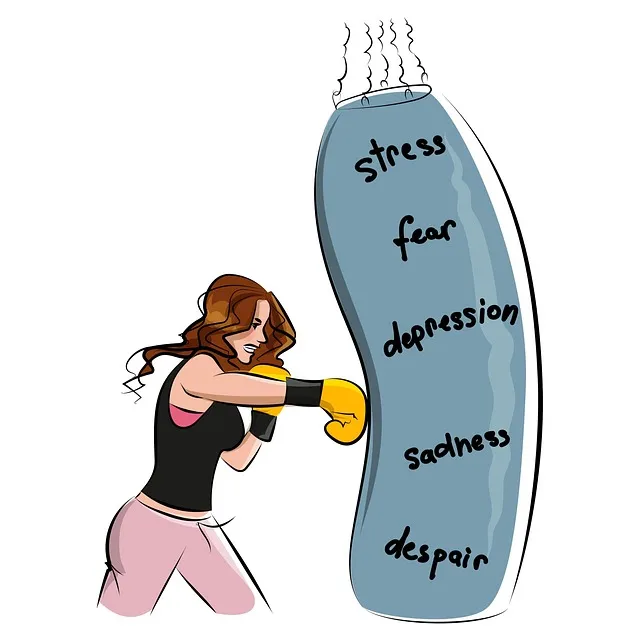The Castle Rock Kaiser Permanente behavioral health center (CRKPPHCC) prioritizes patient safety and care excellence through comprehensive risk assessment and harm minimization planning. They meticulously evaluate potential hazards and vulnerabilities, identifying at-risk individuals and implementing evidence-based strategies for emotional healing and positive social skills training. CRKPPHCC creates personalized harm minimization plans, addressing staff well-being with stress management and burnout prevention techniques. The center continuously evaluates and improves its safety strategies, adapting to evolving mental wellness trends and demands, solidifying its position as a leading behavioral health provider in the region.
At Castle Rock Kaiser Permanente Behavioral Health Center, risk assessment and harm minimization planning are cornerstone practices for providing safe and effective care. This comprehensive guide explores the foundational principles of risk assessment, delving into identifying potential harms and vulnerabilities within our unique setting. We present customized strategies for developing and implementing minimization plans, highlighting continuous evaluation as a key component to ensuring safety in an ever-evolving environment at CRKPPHCC.
- Understanding Risk Assessment: A Foundation for Safe Care at Castle Rock Kaiser Permanente Behavioral Health Center
- Identifying Potential Harms and Vulnerabilities: A Comprehensive Look
- Developing a Customized Minimization Plan: Strategies for Effective Implementation
- Continuous Evaluation and Improvement: Ensuring Safety in an Evolving Environment at CRKPPHCC
Understanding Risk Assessment: A Foundation for Safe Care at Castle Rock Kaiser Permanente Behavioral Health Center

At Castle Rock Kaiser Permanente Behavioral Health Center, understanding risk assessment is paramount for ensuring safe care. It involves a comprehensive evaluation of potential hazards and vulnerabilities within our facility and community, allowing us to proactively mitigate risks before they escalate. This process includes identifying individuals or groups who may be susceptible to harm and analyzing the factors that could contribute to adverse outcomes. By implementing evidence-based strategies and protocols, we aim to create a supportive environment that fosters emotional healing processes and promotes positive social skills training.
Risk assessment serves as a foundation for our harm minimization planning, guiding the development of public awareness campaigns designed to educate both patients and community members. Through these initiatives, we raise awareness about mental health issues, reduce stigma, and encourage early intervention. By integrating this multi-faceted approach, Castle Rock Kaiser Permanente Behavioral Health Center strives to provide exceptional care while safeguarding the well-being of all individuals in our service area.
Identifying Potential Harms and Vulnerabilities: A Comprehensive Look

Identifying potential harms and vulnerabilities is a critical step in risk assessment and harm minimization planning, especially within behavioral health centers like Castle Rock Kaiser Permanente. This process involves thoroughly examining various aspects of an individual’s or community’s mental and emotional well-being. By delving into their unique circumstances, including personal histories, social factors, and existing mental health conditions, professionals can uncover hidden risks that may be overlooked otherwise.
For instance, at a behavioral health center, understanding the impact of mental illness stigma reduction efforts is vital. This might reveal hidden vulnerabilities among individuals seeking emotional healing processes. Through comprehensive assessments, professionals can identify at-risk populations, such as those experiencing undiagnosed or untreated mental illnesses, and design targeted interventions to address these vulnerabilities proactively.
Developing a Customized Minimization Plan: Strategies for Effective Implementation

At Castle Rock Kaiser Permanente behavioral health center, developing a customized harm minimization plan is paramount to effective risk assessment and management. This involves tailoring strategies specific to the unique needs and challenges faced by mental health professionals. A comprehensive plan should incorporate evidence-based practices for stress management, burnout prevention, and crisis intervention, ensuring staff are equipped with tools to navigate complex situations safely.
Implementing this plan requires collaborative efforts across departments, fostering an open dialogue about risk factors and safety protocols. Regular training sessions and workshops on topics like risk management planning for mental health professionals and stress-reduction techniques can enhance staff resilience. By prioritizing these initiatives, the Castle Rock Kaiser Permanente behavioral health center strives to create a supportive environment that not only minimizes risks but also promotes holistic well-being among its mental health professionals.
Continuous Evaluation and Improvement: Ensuring Safety in an Evolving Environment at CRKPPHCC

At the Castle Rock Kaiser Permanente behavioral health center (CRKPPHCC), continuous evaluation and improvement are at the heart of our safety strategies. We understand that the landscape of mental wellness is ever-evolving, much like the needs of our diverse patient population. To ensure optimal care, our dedicated team engages in regular assessments and data analysis to identify emerging trends and risks within our services. This proactive approach enables us to adapt swiftly, enhancing existing programs and developing innovative solutions tailored to the changing demands of behavioral health support.
CRKPPHCC prioritizes a culture of learning from both successes and setbacks, fostering an environment where lessons learned contribute to enhanced patient outcomes. Through collaborative efforts between clinical experts and administrative personnel, we streamline processes related to Self-Esteem Improvement and Emotional Healing Processes, reflected in our successful Mental Wellness Podcast Series Production. This commitment to continuous improvement not only strengthens our ability to mitigate risks but also solidifies CRKPPHCC’s position as a leading provider of comprehensive behavioral health services in the region.
The comprehensive approach to risk assessment and harm minimization planning at Castle Rock Kaiser Permanente Behavioral Health Center (CRKPPHCC) is a testament to its commitment to patient safety. By understanding the foundational principles, identifying potential harms, developing customized strategies, and continuously evaluating improvements, CRKPPHCC ensures that care remains not only safe but also evolves with the dynamic needs of its patients. This strategic approach serves as a model for behavioral health centers worldwide, underscoring the importance of proactive risk management in enhancing patient outcomes and fostering a secure environment.






